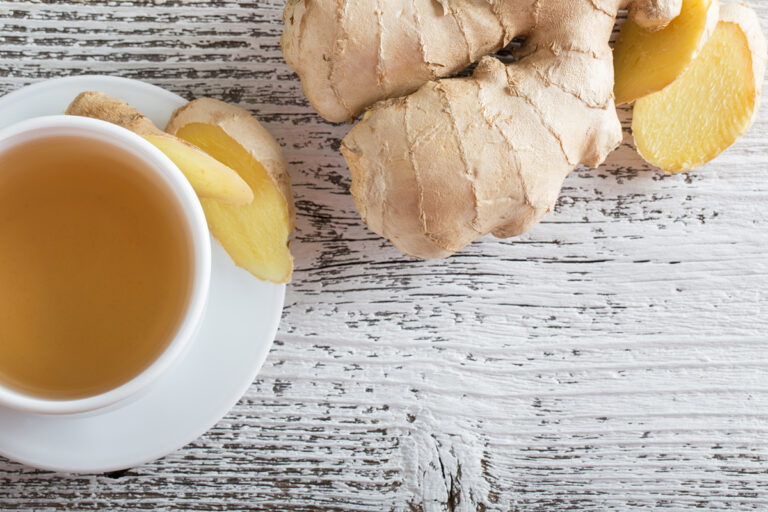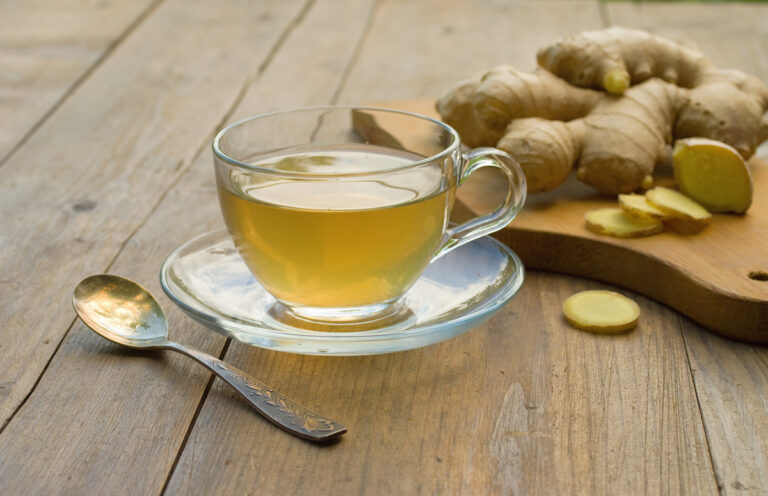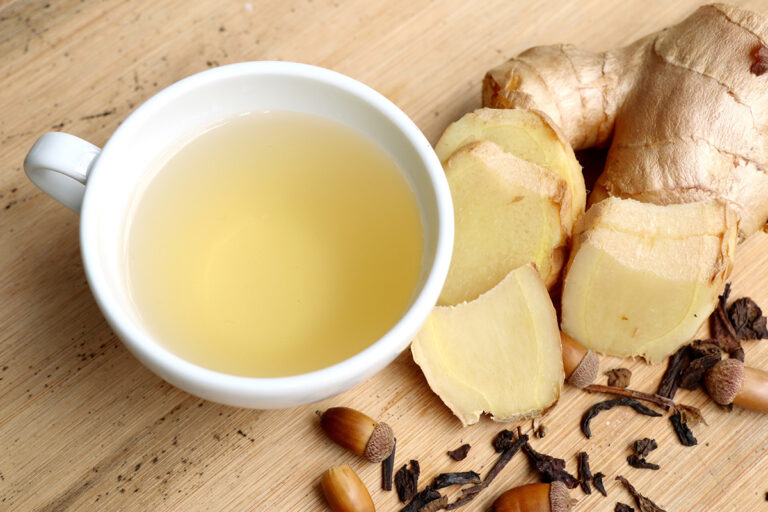When Is the Best Time to Drink Ginger Tea?
As an age-old remedy, ginger tea can ease many health issues, including nausea and sore throats. But when is the optimal time to drink ginger tea and get its full benefits?
The first time you should consider drinking ginger tea is in the morning. Starting your day with a warm cup of ginger tea can stimulate your digestive system and jumpstart your metabolism, setting a positive tone for the day. Furthermore, if you experience morning nausea or stomach discomfort, consuming ginger tea can alleviate these unpleasant sensations.
Another great time to drink ginger tea is right after a meal. Drinking ginger tea after eating can help digestion by promoting healthy gut bacteria and aiding in nutrient absorption. Studies have also shown ginger can decrease inflammation and fight obesity-related diseases like diabetes.

Why Drink Ginger Tea?
Drinking ginger tea offers various health benefits. Here are some reasons why people choose to drink ginger tea:
- Improves digestion: Ginger tea is recognized for its ability to enhance digestive health. It can help reduce bloating and swelling and stimulate the release of gastric acids that help break down food. Additionally, ginger contains active enzymes that help with the absorption of nutrients and can reduce indigestion.
- Reduces inflammation: The antioxidants in ginger tea can fight off oxidative stress, and free radicals that damage cells and cause inflammation. Ginger tea’s anti-inflammatory properties can also aid in alleviating joint discomfort and minimizing muscle soreness.
- Weight loss aid: Drinking ginger tea helps boost your metabolism, which can lead to weight loss. It also helps you feel full for extended periods and helps prevent overeating by curbing cravings.
- Natural remedy for nausea and vomiting: Ginger is known for its ability to ease nausea caused by morning sickness or motion sickness, making it a natural remedy for nausea and vomiting.
- Can reduce menstrual cramps and other PMS symptoms: Ginger has been known to reduce the severity of menstrual cramps by easing muscle spasms. Thanks to its ability to reduce inflammation, it might also aid in relieving other PMS symptoms like swelling, exhaustion, and emotional turmoil.
- Improves circulation: When ingested regularly, ginger tea can increase blood flow by dilating blood vessels. This helps transport oxygen more efficiently throughout the body, which improves overall circulation.
- Helps with colds and flu symptoms: Its well-known antiviral capabilities make ginger an excellent remedy to address colds, sore throats, coughs, congestion, sinus headaches, and fever brought on by allergies or seasonal colds and flu viruses.
- May help lower cholesterol levels: According to studies, drinking two cups of ginger tea daily reduces total cholesterol levels and triglycerides in individuals with high cholesterol levels already present in the body.
- Has anti-cancer properties: Besides its significant antioxidant benefits, ginger may also possess cancer-fighting properties, preventing cancers like colorectal and prostate.
When to Drink Ginger Tea for Weight Loss?
To get the most out of using ginger tea for weight loss, pair it with a healthy diet and plenty of exercises. Ginger tea may help with weight loss by increasing thermogenesis, inhibiting fat storage, and helping control appetite. For best weight loss results, here are some guidelines for when to drink ginger tea:
- Before meals: To support weight loss, drinking a cup of ginger tea 20-30 minutes before meals may help reduce appetite and support digestion.
- In the morning: Drinking ginger tea on an empty stomach early in the morning can kickstart metabolism, which can be beneficial for burning calories more quickly and efficiently.
- Post-workout: Drinking ginger tea after a workout may help reduce inflammation and support muscle recovery, indirectly contributing to weight loss by helping you maintain a consistent exercise routine.
Keep in mind that ginger tea alone is not a magic weight-loss solution. Achieving your target weight involves following a balanced diet, exercising frequently, and striving for a healthier lifestyle.
When Should I Drink Ginger Tea for Acid Reflux?
It’s important to note that the benefits of consuming ginger tea for acid reflux vary from one person to another. While some individuals may find ginger tea helpful in managing acid reflux symptoms, others may not experience any relief or might even notice an increase in symptoms.
Also, let me mention this here. I haven’t found any research on the effects of ginger on acid reflux. As such, relying on this herb as a treatment isn’t recommended now.
To take full advantage of the benefits of ginger tea for your acid reflux, this is when you should consider drinking it:
- 20-30 minutes before meals: To aid digestion and reduce the chance of acid reflux from indigestion, consider drinking ginger tea before your meal.
- Between meals: Consuming ginger tea between meals may help neutralize stomach acid and reduce the likelihood of acid reflux.
Paying attention to how your body reacts to ginger tea is crucial. If your acid reflux symptoms worsen after consuming ginger tea, discontinue its use and consult a healthcare professional for alternative remedies or treatments.
Is It Ok to Drink Ginger Tea On an Empty Stomach?
For most people, drinking ginger tea on an empty stomach is considered safe and can even provide some benefits. Ginger tea can help kickstart digestion, reduce inflammation, and boost metabolism. However, individual reactions to ginger can vary. Some people may experience mild side effects or discomfort when consuming ginger tea on an empty stomach.
There may be a few risks associated with drinking ginger tea on an empty stomach. Ginger can stimulate gastric acid production, which could lead to heartburn or worsened acid reflux for certain individuals.
To reduce the likelihood of adverse effects, begin with a modest quantity of ginger tea and monitor your body’s response. If you experience discomfort, try consuming ginger tea with a light snack or after a meal.
Should I Eat After Drinking Ginger Tea?
Whether or not to eat after drinking ginger tea depends on your personal preferences and the specific benefits you seek from consuming the tea. Here are some general guidelines to consider:
- For digestion: Drinking ginger tea 20-30 minutes before a meal may help stimulate digestion, prevent bloating, and improve nutrient absorption. In this case, eating after drinking ginger tea is recommended.
- For nausea relief: For those who use ginger tea to alleviate nausea, it might be best to wait until nausea fades before eating anything. Ginger tea may help reduce nausea quickly for some people, while it may take longer for others.
- For weight loss: Drinking ginger tea before meals might help increase satiety and reduce overeating. In this situation, eating after consuming ginger tea is also recommended.
- For general health benefits: When drinking ginger tea for its general health advantages, you may choose to eat after enjoying it or have it between meals, based on your preference and your body’s response to the tea.
What Are the Benefits of Drinking Ginger Tea After Meals?
Drinking ginger tea after meals offers several health benefits. Consuming ginger tea can ease stomach discomfort, minimize bloating, and help digestion. Drinking ginger tea has also been linked with reducing inflammation and helping to balance blood sugar levels.
Can I Drink Ginger Tea at Night?
Despite ginger tea’s potential to give a subtle energy increase from its stimulating nature, it is generally regarded as safe and relaxing to drink before sleep for most individuals. The energy-boosting properties of ginger tea are relatively mild compared to caffeinated beverages, so it’s less likely to lead to significant sleep issues for most people.
Can I Drink Ginger Tea Every Day?
The answer is yes, but being mindful of your intake is important. Most people can safely consume one to two cups of ginger tea daily. However, make sure you monitor your consumption since too much ginger may lead to stomach irritation or nausea. Moreover, pregnant women should consult their physician before introducing ginger tea to their diet.
Best Ginger Teas for Your Next Cup
Not all ginger teas are created equal; some may be more flavorful or offer more health benefits. Here are some of the best organic ginger teas we have discovered through testing.
Conclusion
In conclusion, ginger tea offers a myriad of health benefits. Depending on your goal, you can enjoy it at different times during the day. Drinking ginger tea in the morning can kickstart digestion and metabolism. Enjoying it after meals may help with nutrient absorption and reduce inflammation. Consuming ginger tea for weight loss, acid reflux relief, and general health benefits is a matter of personal preference and individual reactions.
Drinking one to two cups of ginger tea daily is generally safe, but moderation is key. Keep track of your intake and consult a healthcare provider if you feel discomfort or have concerns about incorporating ginger tea into your routine.
FAQ
How Long Does Ginger Tea Last in the Fridge?
Ginger tea can last up to one week in the refrigerator when stored in a clean, airtight container. Make sure it’s cooled down to room temperature before refrigerating to maintain its quality.




